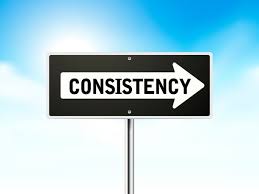If you feel like you’re working too hard or talking too much in a coaching conversation, you are! It’s time to rethink your strategy.
Consider that your objective when coaching is to unlock the potential of the person you’re coaching; to maximize their performance by helping them to learn and grow. As a coach, it’s not about teaching or telling them what to do. Ironically, the approach that many new sales coaches use in an effort to flex their new coaching skills can have the opposite effect by making the person they are coaching more dependent on their support. Let me explain.
To meet the pressure, they feel to demonstrate their coaching ability, some new coaches spend more time talking or, more likely, thinking about what to say next than listening. And the less they listen, the more they will have to talk. It’s a vicious cycle.
To be fair, many new sales coaches do a great job of starting with that ‘great question’; one that’s open-ended and broadly stated. One that requires the person they’re coaching to think. The slippery slope they are on begins to get more perilous when, instead of listening to the answer, the inexperienced coach is busy trying to form that next ‘great question’ so they can appear to be stunningly provocative once again. The problem is, when we are thinking, physiologically, we can’t be listening. And when we aren’t listening, it’s difficult – if not impossible – to ask questions that build on the response we’ve been given. That next ‘great question’ that we’ve devised has nothing to do with what the person we’re coaching just said! And that makes it difficult to have an engaged and productive coaching conversation.
However, when coaches can shut down that inner voice – that self-talk, and focus on active listening, the next brilliant question will invariably present itself. With practice, effective coaches listen not just to what’s being said, but to what’s not being said. Most importantly, they listen and watch for how it is being said. There is a completely separate conversation going on beyond words, according to author of Power Cues, Nick Morgan. His work talks about how our subconscious mind can process information much faster than our conscious mind. Our unconscious minds can process as many as 11 million bits of information per second, while our conscious minds are limited to 40 bits. And so, we instinctively delegate a great deal of information-processing to our unconscious which appears in gestures and body-language
A good coach must be patient and learn to listen actively, which of course, is different than just hearing what is being said. It’s about interpreting and watching and looking for the non-verbal cues. Taking note of eye-contact, tone of voice and all the discomforts that might be shown when someone is candidly laying their truth out. If they are so busy thinking about their next ‘great question’ – they are going to miss some important insight.
With intent, active listening, the energy and time commitment switches entirely. The coach may see a disconnect between the words and how they are being presented as an opportunity to drill down another layer by saying something like, “I don’t hear the conviction in your voice, what’s getting in your way?”. The respondent may talk through something that is holding them back and, with some coaching guidance, resolve their own problem. All led by short, open-ended questions. This is a coaching victory.
The team member now owns the solution and the coach has just been a catalyst or a facilitator of their thinking and action planning. Coaches provide the structure to them to analyze the problem aloud and contemplate solutions. And to do it well, the coach doesn’t really have to work hard at all. By listening and supporting the natural flow of the conversation, the person being coached learns to think critically about a situation and articulate thoughts that they may not have otherwise considered. The person receiving the coaching has learned how to solve their own problem. And, at the end of the day, isn’t that what good coaching is all about?
Interested in more? Explore our PROGRAMMES DE FORMATION À LA VENTE.
Let’s connect and discuss how we can help transform your team’s sales results.
Optimé International | Recognized as a Top Sales Training Company (2024) by Selling Power Magazine



